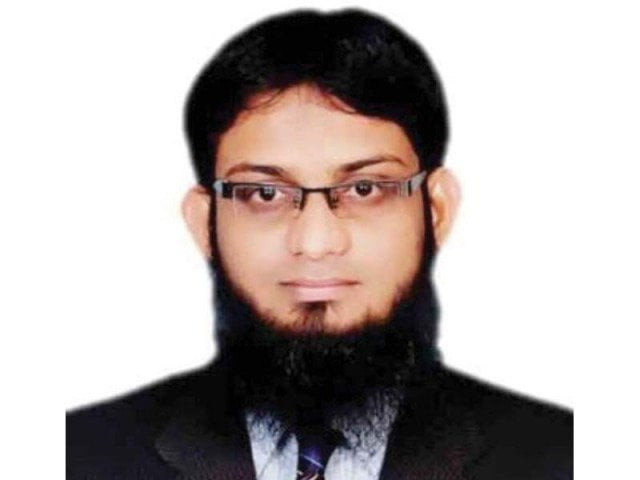A mindset without boundaries
The arrest of Owais Raheel point towards the many different levels and avenues where the plague of extremism exists

Owais Raheel
In recent times, we have seen persons from other top-notch institutions being arrested for links to banned organisations. The mastermind of the Parade Lane attack of 2009 was a student at the International Islamic University. An NED engineering graduate was killed in a drone attack in North Waziristan in 2012. And then there is the case of Saad Aziz, an IBA graduate, which is all too fresh in memory. In his statement, Aziz mentioned that in 2010 he had met a man called Haris, who was heading al Qaeda’s recruitment wing at the time. Haris is known to have been arrested at the Punjab University’s hostel.
All these examples tell us of a grave and disturbing reality. The notion that adherents of extremist ideology and those involved in acts of terror only belong to certain geographical areas of Pakistan or those who study in religious seminaries, is naive at best. The cancer of extremism is alive and kicking in all segments of Pakistani society and is not limited to the poor, illiterate or those who have studied in madrassas. Policy prescriptions like the National Action Plan or the crackdown on madrassas aren’t going to solve all the problems we face vis-a-vis extremism and terrorism. While these are needed, they cannot address all our long-brewing problems. We need a more sustained, long-term plan that goes beyond mere military operations because what Pakistan needs is an ideological and cultural shift. The road ahead is going to be a long and bumpy one.
Published in The Express Tribune, October 12th, 2015.
Like Opinion & Editorial on Facebook, follow @ETOpEd on Twitter to receive all updates on all our daily pieces.













COMMENTS
Comments are moderated and generally will be posted if they are on-topic and not abusive.
For more information, please see our Comments FAQ